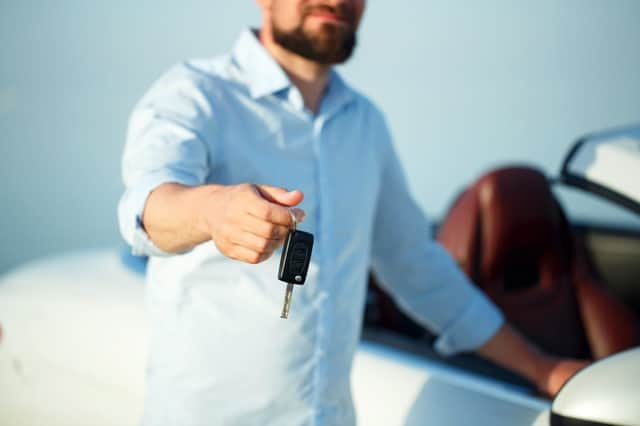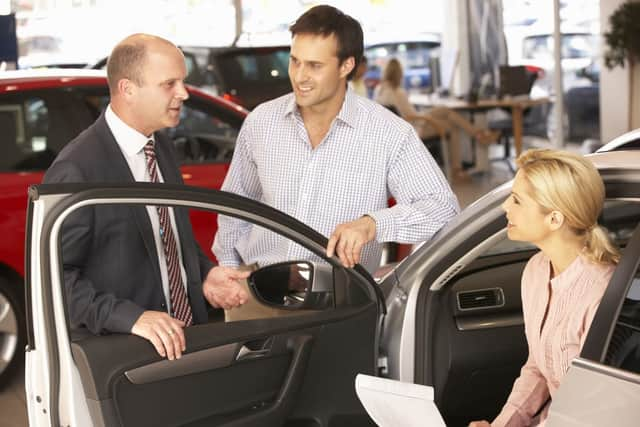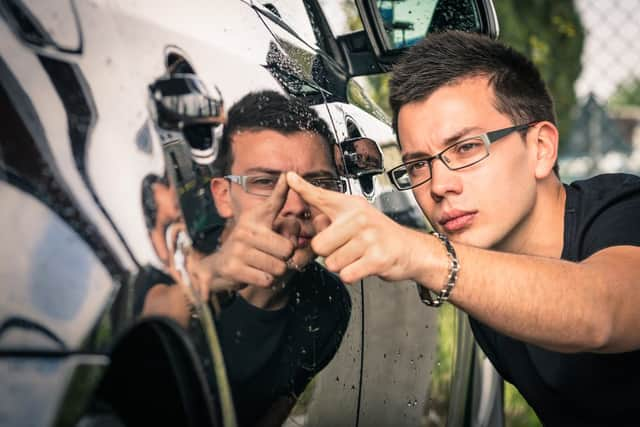Four key things to consider when buying a used car


After a house, a car is usually the most expensive purchase we will make, even if it’s second-hand rather than brand new.
Whether you’ve saved up the cash or worked out a suitable way of getting finance, the next big step is finding your dream car.
Advertisement
Hide AdAdvertisement
Hide AdBut even once you’ve tracked down the right model, you need to make sure it isn’t hiding any nasty surprises, in terms of a dodgy history or potentially catastrophic mechanical problems.
Fail to carry out basic checks and you could end up with a stolen or written-off vehicle or be left facing a bill for thousands if a key component such as gearbox or turbo packs in.
With this in mind, James Fairclough, CEO of AA Cars, has offered his advice on what critical checks to make when buying a used car.
Know the seller
If you choose to buy from a private seller, you should ensure that they are the registered owner of the vehicle by going to their address and checking it matches the address found on the vehicle’s V5C document. Always be cautious if the seller wants to meet you on ‘neutral’ ground such as a service area or lay-by somewhere, as the car may be stolen.
Advertisement
Hide AdAdvertisement
Hide AdSome scammers advertise a car and claim it’s overseas and ready to be shipped once you’ve paid a deposit. If you encounter a seller like this walk away immediately.
Remember that if you choose to purchase your vehicle privately, you are not protected by the Consumer Rights Act if something goes wrong.


If you buy from a registered motor trader this Act, ensures you are entitled to a repair, replacement or some money back if a fault comes to light in the first six months after purchase as long as the problem was present when you bought the car.
The majority of reputable dealers will also offer a warranty which will protect you should any unforeseen mechanical failures occur. Just check what is and isn’t covered as levels of protection do vary.
Advertisement
Hide AdAdvertisement
Hide AdIf you’re buying for a trader do your homework on them. Look for reviews from previous customers and ask around for recommendations to see if they have a good reputation or not.
Check the history
Whoever you buy from, it is vital to see the car history and ask about any accidents or recent repairs. Getting a history check will help you ensure you are not buying a stolen car, or one that has been written off, while also providing other critical information about the vehicle such as whether it has outstanding finance against it.
Dealers are obliged to prepare the car before offering it for sale, including verifying the accuracy of the recorded mileage. The service history will indicate the vehicle’s mileage, as it should have been recorded at every service, and is important to check. Paying attention to this will help to protect you from ‘clocking’, whereby the mileage is tampered with so the car can be sold with a lower mileage than it actually has. Take care to check how the car looks - if it appears worn, but the mileage seems low, take extra precautions.
Mechanical checks
James recommends paying for a professional mechanic to check any vehicle before you buy to ensure there are no underlying problems.
Advertisement
Hide AdAdvertisement
Hide AdA good vehicle inspection will look at all the major elements of a car, including the bodywork; chassis; suspension; steering, transmission; fuel and exhaust systems, brakes; wheels and tyres; electrical controls and the interior.
If you don’t want to pay for an inspection James recommends you check external features such as the tyres, lights and windscreen wipers, and ensure the warning lights function properly.


However, it is crucial you check all the working components too. Are the brakes effective, or do they make an unusual noise when applied? Is the steering wheel pulling to one side? Check the clutch - a noise when you press the pedal or a high biting point could mean that repairs will be required soon. Find out if the car has been driven frequently in hilly areas or towed a lot, this can affect how long a clutch will last before it needs to be repaired or replaced.
Keep your ears open for any unusual noises, be mindful of how the car looks (mismatched colours can indicate multiple repairs) and check if the keys work properly.
Advertisement
Hide AdAdvertisement
Hide AdIf you consider that the engineers carrying out the inspection check for nearly 130 elements of a car, then question if you have ticked off as many aspects of the car in your own assessment as possible.
Don’t rush in
Crucially - if a deal looks too good to be true, it probably is. It is best not to sign anything or hand over any money until you're absolutely happy – there will be other, similar cars available so there's no need to take a risk if you feel uneasy.
This article first appeared on The Scotsman